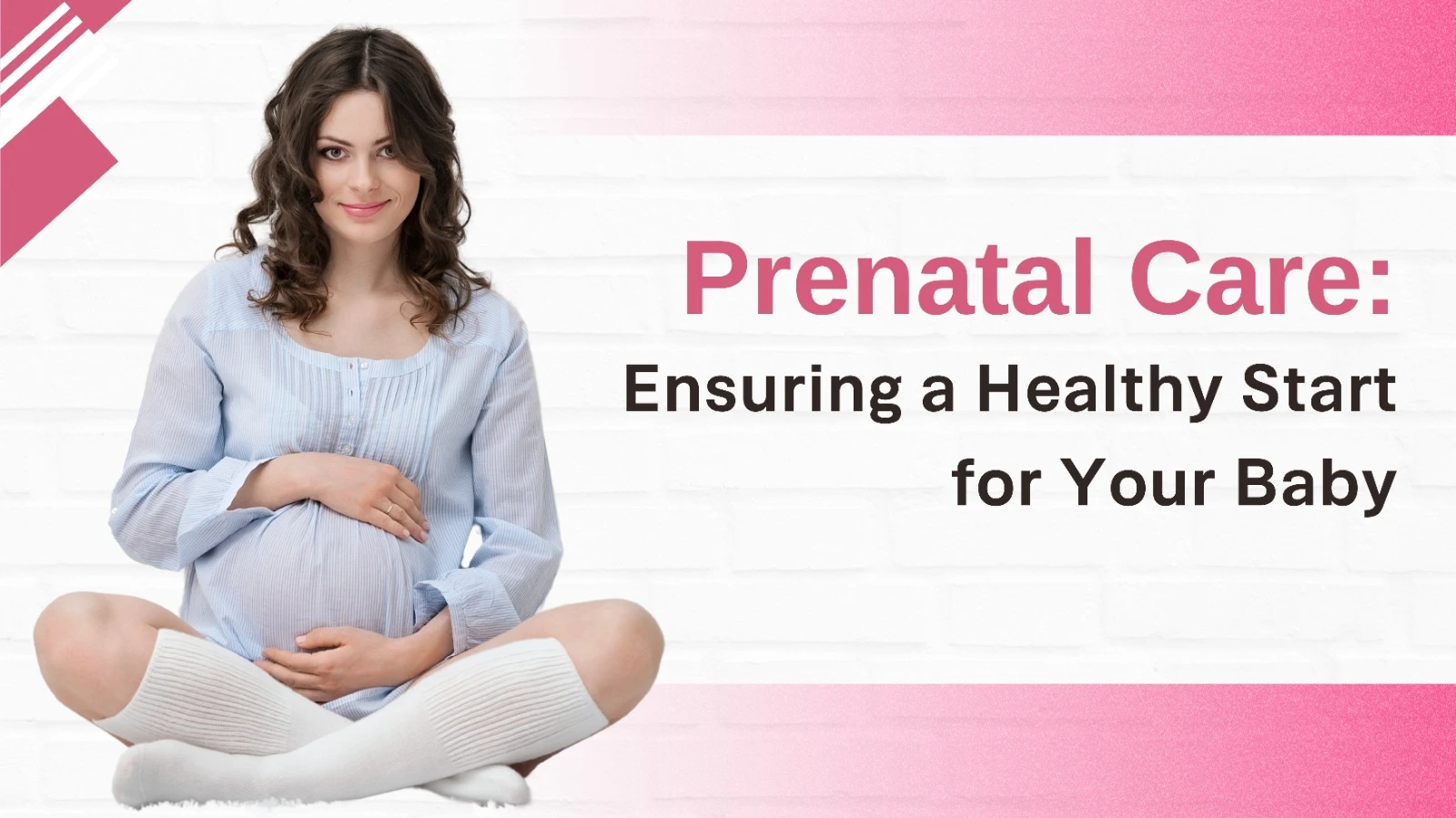
Prenatal Care: Ensuring a Healthy Start for Your Baby
Pregnancy is a transformative journey, and prenatal care plays a vital role in ensuring a healthy start for both mother and baby. Comprehensive care during pregnancy helps monitor the baby’s growth, identify potential complications, and equip parents with the knowledge they need for a smooth transition into parenthood.
In this blog, we’ll explore the key aspects of prenatal care and why it is essential for a healthy pregnancy.
What is Prenatal Care?
Prenatal care involves regular medical check-ups, nutritional guidance, and lifestyle recommendations during pregnancy. It is designed to:
- Monitor fetal development.
- Detect and manage health issues early.
- Provide support and education to expecting parents.
Why is Prenatal Care Important?
1. Ensures Maternal Health
- Regular check-ups help monitor blood pressure, blood sugar, and weight gain.
- Early identification of conditions like gestational diabetes and preeclampsia can prevent complications.
2. Promotes Fetal Health
- Tracks the baby’s growth and development through ultrasounds and tests.
- Identifies potential congenital issues early.
3. Reduces Risks
- Timely interventions lower the risk of premature births, low birth weight, and other complications.
4. Provides Emotional Support
- Prepares parents mentally and emotionally for childbirth and parenting.
Key Milestones of Prenatal Care
Pregnancy is divided into three trimesters, each with its own set of milestones:
First Trimester (Weeks 1-12): Building the Foundation
- Initial Visit: Includes a thorough medical history, physical exam, and confirmation of pregnancy through blood tests or ultrasound.
- Key Screenings: Blood tests to check for anemia, blood type, Rh factor, and infectious diseases like HIV and hepatitis.
- Prenatal Vitamins: Folic acid is crucial for preventing neural tube defects in the baby.
Second Trimester (Weeks 13-28): Monitoring Growth
- Anomaly Scan: A detailed ultrasound checks for structural abnormalities in the baby.
- Gestational Diabetes Test: Screens for high blood sugar levels.
- Quickening: First movements of the baby are typically felt around weeks 18-22.
Third Trimester (Weeks 29-40): Preparing for Delivery
- Fetal Position: Determines if the baby is in the head-down position.
- Group B Strep Test: Checks for bacteria that could affect the baby during delivery.
- Birth Plan Discussion: Addresses delivery preferences, hospital arrangements, and pain management options.
Components of Comprehensive Prenatal Care
- Routine Check-ups
- Regular visits are scheduled monthly during the first and second trimesters, bi-weekly in the third trimester, and weekly closer to the due date.
- Ultrasound Scans
- Early scans confirm the pregnancy and estimate the due date.
- Later scans monitor the baby’s growth, amniotic fluid levels, and placenta health.
- Blood and Urine Tests
- Screen for infections, anemia, and gestational diabetes.
- Monitor kidney function and detect preeclampsia risks.
- Nutritional Guidance
- Balanced diet recommendations include lean proteins, whole grains, healthy fats, and plenty of fruits and vegetables.
- Hydration and calcium intake are emphasized for bone health.
- Exercise and Fitness
- Moderate activities like walking, swimming, and prenatal yoga improve circulation, reduce stress, and prepare the body for labor.
- Mental Health Support
- Hormonal changes can lead to mood swings or anxiety. Open discussions with healthcare providers ensure timely support.
Common Challenges During Pregnancy
1. Morning Sickness
- Affects 70-80% of pregnant women, especially in the first trimester.
- Small, frequent meals and ginger tea can help alleviate symptoms.
2. Fatigue
- Hormonal changes and increased energy demands often cause fatigue.
- Adequate rest and iron-rich foods can boost energy levels.
3. Swelling (Edema)
- Common in the third trimester due to fluid retention.
- Elevating legs and staying hydrated can reduce swelling.
4. Back Pain
- Growing belly shifts the center of gravity, straining the back.
- Prenatal exercises and proper posture provide relief.
Preparing for Labor and Delivery
1. Childbirth Classes
- Teach breathing techniques, labor positions, and pain management strategies.
2. Hospital Bag Essentials
- Include items like identification, insurance cards, comfortable clothing, toiletries, and baby essentials like diapers and blankets.
3. Emergency Signs to Watch For
- Severe headaches, blurred vision, reduced fetal movement, and vaginal bleeding require immediate medical attention.
Partner’s Role in Prenatal Care
Support from a partner can make the pregnancy journey smoother. Partners can:
- Attend prenatal appointments.
- Assist with household tasks.
- Provide emotional support during labor and delivery.
Prenatal care is the cornerstone of a healthy pregnancy. It empowers parents with the knowledge and support needed to welcome their baby into the world. By staying informed and proactive, expectant mothers can navigate the journey of pregnancy with confidence and joy.
If you’re pregnant or planning to conceive, schedule a prenatal visit with your healthcare provider to start this incredible journey on the right foot.
